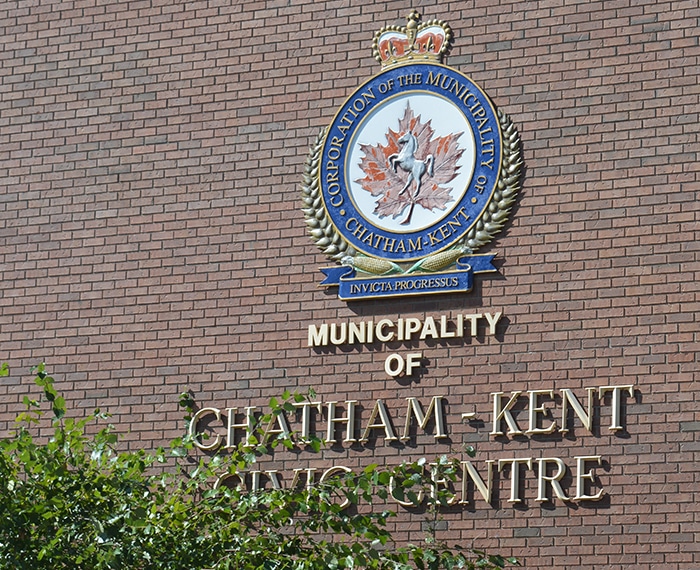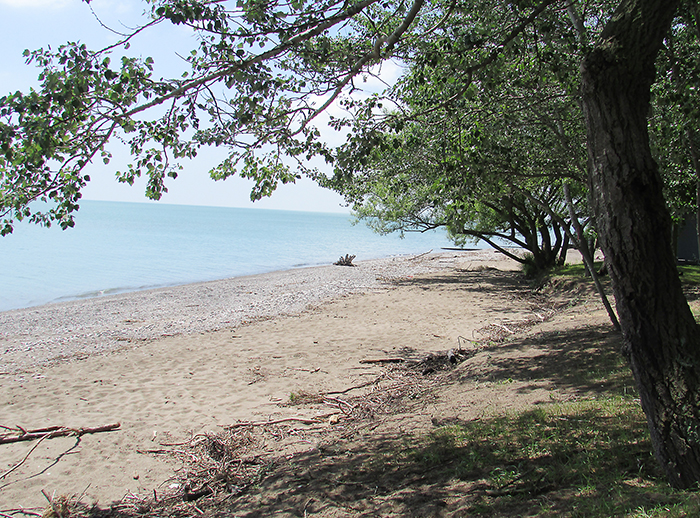
By Jenna Cocullo
As the unprecedented virus outbreak continues, council may have to tighten its belt as they decide what financial purchases to make for the long-term.
Another slow down in the economy will be felt throughout Ontario following an announcement from Premier Doug Ford that all “non-essential businesses” will be ordered to shut down by 11:59 p.m. on Tuesday.
At Monday night’s council meeting – held virtually for the first time in its history – chief financial officer Gord Quinton said he is planning a financial report for April to determine the state of the local economy and how best to help both residents and businesses.
While the provincial and federal government can spend billions providing stimulus packages to reinvigorate the economy and aid suffering businesses, municipalities are not allowed to run deficits, explained Quinton.
Quinton told The Chatham Voice that the COVID-19 outbreak could cost municipalities millions from extra public health expenses and other unexpected costs.
“What we don’t know is if or how the province will assist municipalities,” he said.
Mayor Darrin Caniff said the question of running a deficit was posed to the province and the government is putting every option on the table when it comes to assisting municipalities.
He also added that the extra costs the city may incur from the COVID-19 outbreak will not compromise any of the Erie Shore Drive repairs.
“We will commit everything we need to commit to that,” Canniff said. “The municipality was in strong financial shape coming into this. We have reserves and the ability to ride this thing out while we help citizens and businesses in the community. We are good for now and starting out on solid ground.”
City councillors were already doing their due diligence before approving municipal spending at Monday night’s meeting.
Council approved to allocate $1.4 million from the Provincial Gas Tax Reserve for public transit vehicles despite not knowing if they would still be able to receive federal grants for the remainder of the costs in the wake of COVID-19.
They also approved spending $3.6 million for the purchase of new vehicles and equipment replacement.
South Kent Coun. Mary Clare Latimer, one of the councillors who questioned whether or not it was prudent spending, said in the end council made the right decision, explaining that they feared the price tag would rise in the future, costing the city even more.
“Right now everything is up in the air but this was a pretty important purchase,” she said. “But we will have to look at all our services, just as everyone in Ontario is now, and not make quick decisions. Everything is just so unsure and unprecedented right now.”
Quinton said had the council not approved the expenses it would cost more in the long run to repair the 15-18-year-old vehicles. It would also raise issues of safety as some orders take up to two years to receive, leaving aging vehicles on the road longer.
“It’s too early in the state-of-emergency to stop making long-term decisions,” Quinton said.
With many community groups cancelling events, council also voted to take a second look at the Together CK Grant money and come back with a report on how to spend those funds at a later council meeting.
Quinton will be presenting his economic report to council on April 6. Options presented before council could range from extending tax payment dates to delaying city projects to helping businesses with payments, he said, also adding that bailouts are not a municipal government role.
“Right now we don’t know if the emergency will last two more weeks, months or years. What we decide April 6 might be just for the next two months, but that does not stop us with coming out with another program two months from now when we know more about what is going on.”






